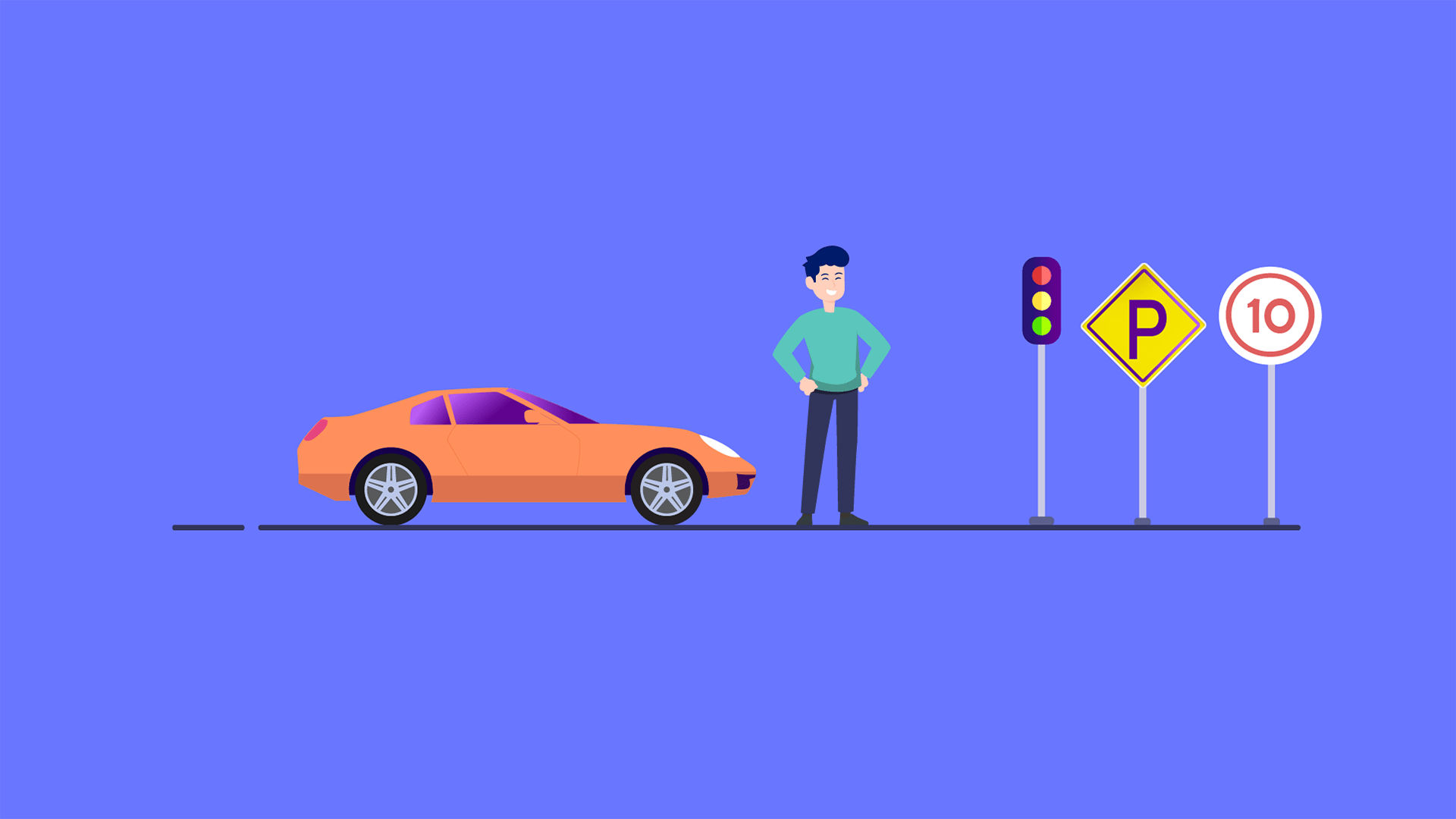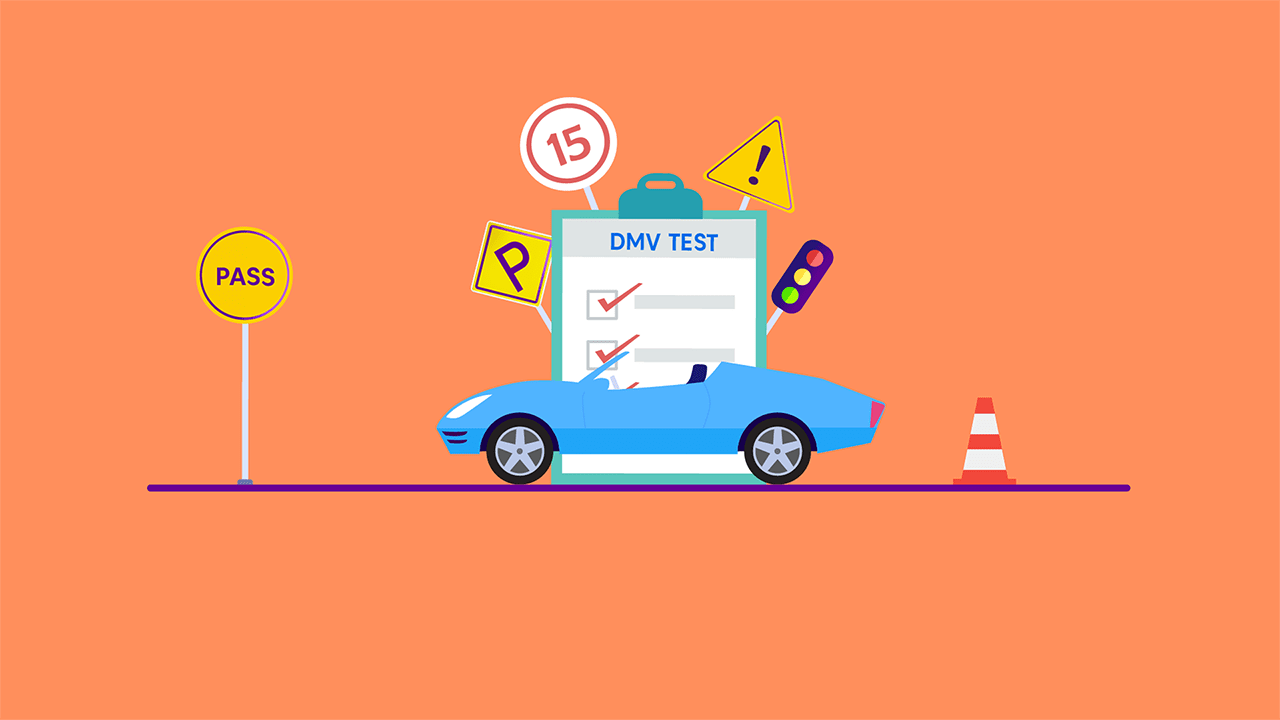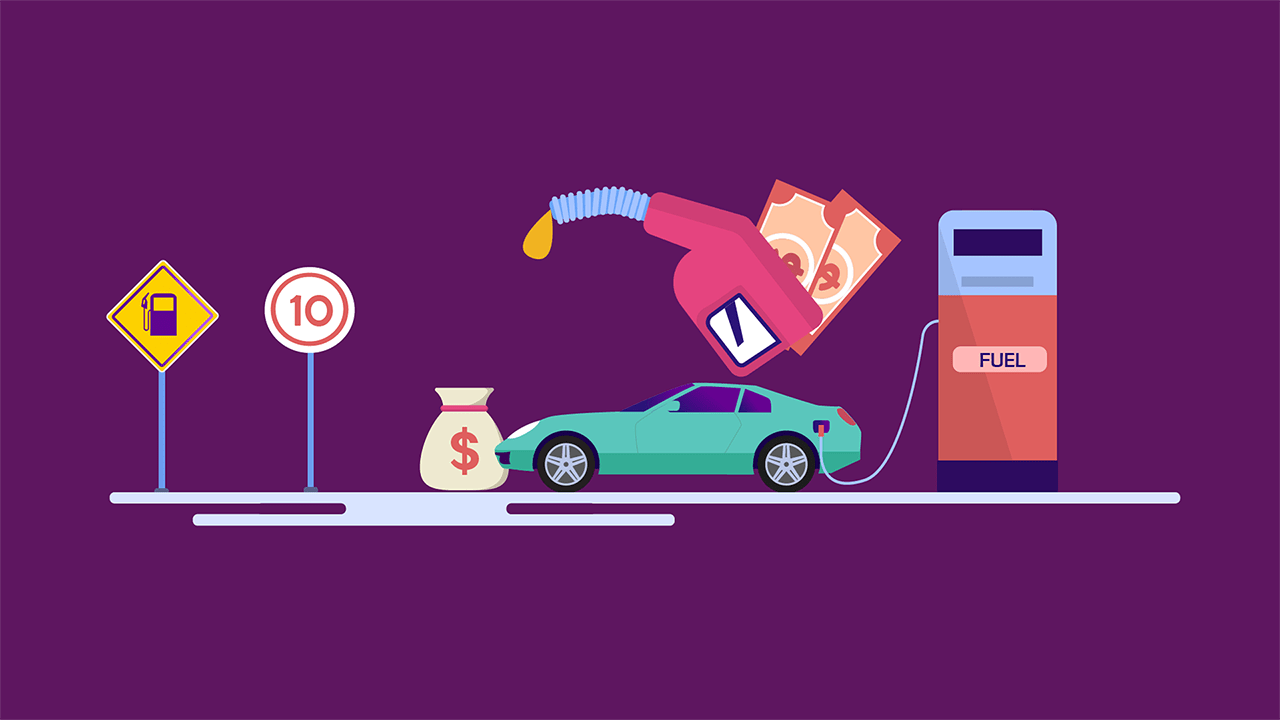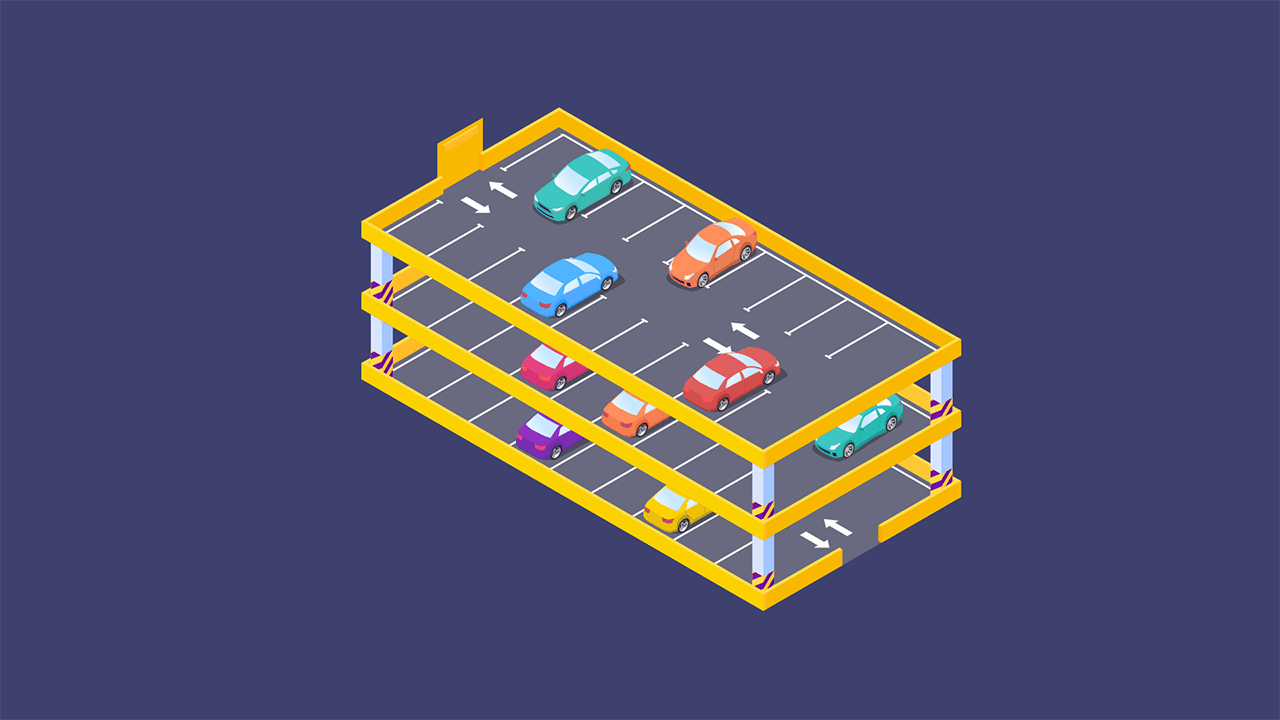First-Time Driver Essentials: 10 Tips for a Confident Start
By Umm e Hani on Apr 04, 2024
Contents
- Useful Tips for New Drivers
- Get to Know Your Car
- Always Drive at a Safe Speed
- Avoid Distractions
- Avoid Night Driving
- Keep Your Passengers to a Minimum
- Use Your Senses While Driving
- Learn Some Auto Basics
- Say No to Alcohol and Driving
- Smooth Acceleration and Gentle Braking
- Always Obey Road Signs
- That’s A Wrap!
- FAQ
Getting your driver's license in the USA can be super exciting. It means you can finally hit the road on your own, without your parents telling you what to do. But remember, you're just starting out, and there's a lot to learn.
Driving is a big step towards independence, but it also comes with new challenges. If you're not cautious, it can pose risks. You see, driving is something you get better at over time. It takes practice and patience to become a really good driver.
The most important lessons come when you're driving by yourself, and that's when you start to feel more confident.
So, here are 10 simple driving tips for beginners to help you go from feeling nervous to feeling confident behind the wheel. Let's dive in.
Useful Tips for New Drivers
Get to Know Your Car
Before you hit the road by yourself, take some time to get to know your car better. Learn how everything works – your seats, locks, air conditioning, heaters, defrosters, radio, windows, and where to find your bright lights. It's a good idea to read the owner's manual to understand your vehicle.
The last thing you want is to start searching for buttons or switches while driving. That could lead to trouble!
To boost your confidence, sit up straight, buckle up with your seatbelt, keep some snacks handy, chew gum, or enjoy some music while driving.
Always Drive at a Safe Speed
As you become more confident in car driving, you might feel like speeding up and going beyond the speed limits. But remember, it's crucial to stick to those speed limits for your safety and the safety of others.
Following speed limits isn't just about obeying the law; it's about making sure everyone on the road stays safe. When you drive at a safe speed, you have better control over your vehicle.
Your speed should be influenced by things like the traffic around you, the condition of your car, and the road itself. Weather conditions, like rain or snow, also play a role in determining a safe speed.
Always keep an eye on your speedometer to make sure you're not going too fast. If you realize you're speeding, slow down to stay safe.
Avoid Distractions
Distracted driving is a leading cause of accidents, accounting for about 60% of them. It's essential to develop good driving habits, like not using your mobile phone while driving.
If you need to eat, find a safe place to stop, finish your meal, and then continue driving. Even a few seconds of distraction can be dangerous for you and other drivers on the road.
Don't assume that using a hands-free device is safe. Any conversation while driving can divert your attention and lead to a crash. Avoid adjusting the radio, using your mirror, or applying makeup while driving.
Multitasking while first time driving basics is also a no-no. This includes searching for music, texting, or talking on the phone. If you're feeling sleepy, pull over and get some fresh air to stay alert.
Focus solely on driving and the road ahead. Even having a chatty passenger can be distracting and affect your concentration.
Avoid Night Driving
If you're a new driver and learning how to drive, it's best to steer clear of driving at night. Nighttime brings reduced visibility, more drunk drivers on the road, and tired drivers rushing to get home. It's a risky time to drive when many drivers aren't fully focused on the road.
As a first-time driver, it's a good idea to be back home before sundown. You can gradually start driving at night as you gain more experience, but it's even better to have an adult with you.
Night driving is particularly dangerous because many recent accidents happen after dark, and these accidents tend to be more severe and deadly.
Additionally, at night, your visibility is limited. Your car's headlights only illuminate a short distance ahead, making it difficult to see objects, animals, or pedestrians crossing the road.
Keep Your Passengers to a Minimum
When you're a new driver, it's important to limit the number of passengers you have in your car. Having too many friends in the car can be distracting and increase the risk of accidents. In fact, the National Safety Council recommends not having peers or siblings ride with you for at least a year or six months after getting your driver's license.
It's a good idea to keep your company to a minimum while you're driving. It's easy to get distracted when friends are dancing, singing, playing loud music, taking selfies, posting on social media, or acting rowdy. So, it's best to focus on driving and limit the number of passengers in your car.
Use Your Senses While Driving
When you're behind the wheel, it's crucial to use all your senses. Keep your eyes open for any signs of trouble, like the smell of burning oil or brakes. Listen carefully to any issues your vehicle might be having or the sounds of emergency sirens. Don't just focus on the road ahead; pay attention to your car and the surrounding environment.
Be mindful of the pressure and release of the brake and gas pedals when you use them.
By using all your senses, you'll be more aware of what's happening around you, which is especially important when you're a new driver. It helps in maintaining your safety on the road.
Learn Some Auto Basics
For new drivers, it's helpful to grasp a few auto basics like opening the hood, jump-starting a battery, adding oil and coolant, changing a tire or a light bulb, and understanding the various dashboard warning lights.
Remember those lessons from your driving school? Your car might encounter problems in unexpected places without any roadside assistance nearby. Having a basic understanding of auto mechanics can get you out of a simple jam faster than you'd think.
Say No to Alcohol and Driving
Drinking and driving not only endangers lives but can also land you in prison. Many people lose their lives in alcohol-related accidents. Don't risk causing harm to yourself or others. Drive sober and ensure safety.
Smooth Acceleration and Gentle Braking
When driving for the first time, practice self-control. Avoid abruptly stepping on the gas pedal when the light turns green. Instead, smoothly accelerate after a complete stop and apply gradual pressure on the pedal.
Maintain a firm grip on the steering wheel for better control. Avoid slamming the brake pedal to the floor; instead, learn to anticipate stops and gently apply the brakes to bring the car to a smooth halt.
Always Obey Road Signs
Before hitting the road, ensure you understand all the road signs, pavement markings, and safety signals provided by the Department of Motor Vehicles. Overconfidence should not lead you to ignore these essential signs. They are there for a reason and must be followed.
Complying with road signs also helps you avoid fines and penalties, especially for speeding and reckless driving. To steer clear of a first-time speeding ticket, make it a rule to strictly adhere to road signs while driving.
That’s A Wrap!
Driving on your own for the first time can be exciting, but it's crucial to prioritize safety. Start by driving in familiar areas like your neighborhood before venturing onto the highway once you've gained more experience and confidence. Follow these first time driving tips mentioned above and stay alert and cautious to prevent accidents and ensure a smooth driving experience.
FAQ
Why does driving feel scary when you're new?
New drivers often feel scared when they start driving because they lack confidence in their skills. This self-doubt can create fear and anxiety, making them overly critical of their driving abilities.
How can I overcome nervousness while driving?
Nervousness while driving can stem from the fear of something going wrong. To combat this nervousness, you can try techniques like deep breathing, maintaining a comfortable posture, using virtual practice, and relaxation methods.
What should a driver do before hitting the road?
Before your first drive, it's essential to perform a few checks. Examine the car's exterior, ensure all lights are functioning (especially indicators), inspect the rearview and side mirrors, and confirm that seat belts work correctly. Once everything checks out, you can hit the road with confidence. Follow these driving techniques before hitting the road.


